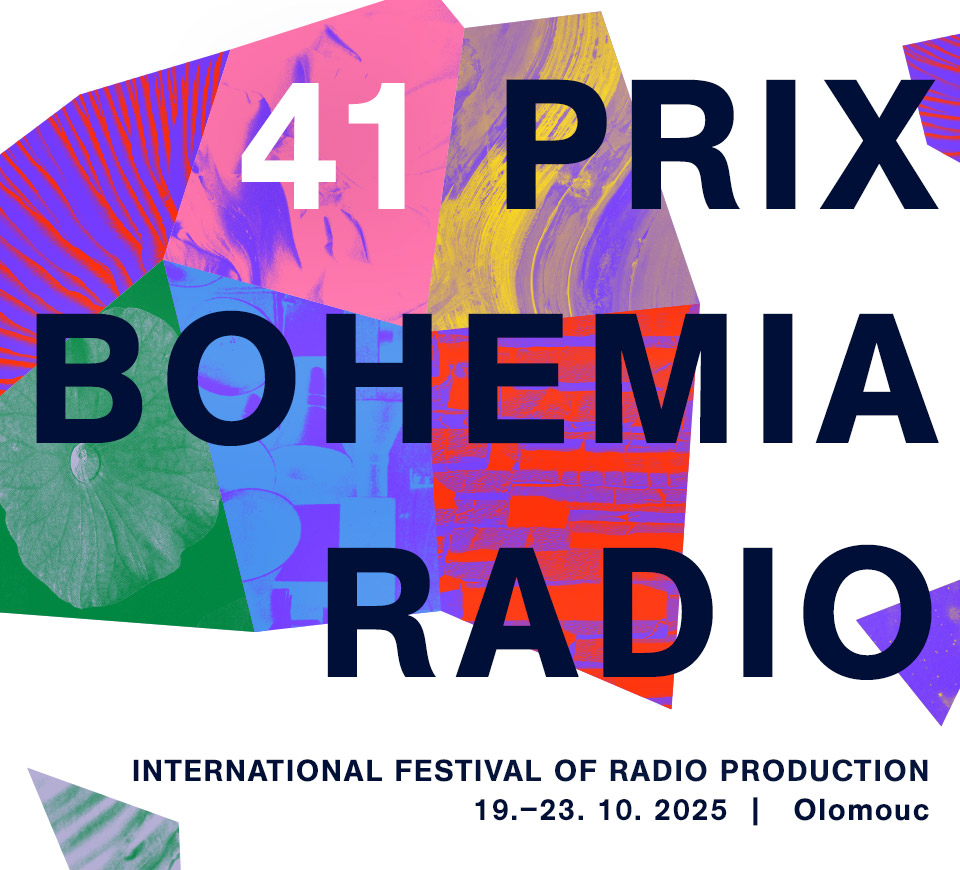Adaptations of famous works, history and productions for children. How did this year's Drama category go?
On Wednesday, visitors had the opportunity to listen to the five shortlisted productions in the Drama category. What does this year's selection tell us about contemporary radio fiction?
I have personally experienced the Drama Category Listening Day for the umpteenth time, but this is my first time as a member of the student jury. Two of my colleagues and I had the opportunity to listen to the radio works beforehand and discuss which ones deserved to win. We had different opinions, but one thing became clear very quickly - none of this year's plays impressed us very much. That's not to say that we considered them to be of poor quality - rather, they didn't bring anything new or unexpected.
Wednesday morning began with Crossroads, the only original play, about the dramatic Prague Uprising, jumping between several space-time plains. The production offers an intriguing moral dilemma, but it could have gone deeper, instead we hear a compilation of key moments that loses pace and breath at the end. The jury acknowledged that by focusing on the historical side of the production, it misses out on a more pronounced "zoom" on the characters, but greatly appreciated the theme and layered characters that challenge the concept of the hero that Czechs often seek. Also intrigued by the modern sound, which contrasted with the historical theme and maintained the pace and atmosphere.
There is no denying that King Ubu, a production about a violent tyrant, is still relevant in the current context of the invasion of Ukraine and the rise of far-right parties. As the on-site jury noted, reality has caught up with the absurd 19th century drama. The jury described the production as playful sound poetry, with music and sound replicating the characters' follies. One does not rest with it, just as one does not rest under the rule of King Ubu.
Mr. Theodor Mundstock is a successful adaptation with a fine sound design and a convincing performance by Vladimir Javorský, for which he certainly deserves the Thalia Award. The jury described the production as a compact symphony of human suffering that can evoke compassion. The binaural sound design, which differentiates the different environments, but still leaves room for the imagination, was impressive. The jury also appreciated how the dramatisation was able to convey the image of a disintegrating mind. We, the student jury, thought the drama was dragged down by the very traditional treatment, which lacks a stronger gradation in the second half.
The last two plays are thematically very different from the rest - their target group is mainly children. Mowgli impresses with its rich orchestral music and attractive jungle setting, but older listeners may be put off by the frequent exposition. The jury praised the music and the work with space the most. At the same time, however, there was criticism of the actors' performances, which often lacked strong characterisation of the characters, making the production feel uneven.
Why Is Heaven So Far Away is perhaps the most interesting with its sound design made up largely of people. The production feels like a vivid dream, and manages to capture both childhood imagination and frustration with ease. Several members of the jury said the play had touched them personally. They appreciated the interesting composition and the clean and balanced treatment in terms of text and sound. They also praised the way in which the production presents deeper themes for the children to think about.
In general, this year's selection can be described as a safe bet. With the exception of Crossroads and Why Is Heaven So Far Away (based on Daisy Mrázková's children's books), these are adaptations of acclaimed texts that do their job and feature great acting, but are very traditional to the point of being predictable in their treatment. What is absent from most productions is a sense of authorship and unique vision. Klára Salcmanová from the student jury explains this by the lack of competition. Radio plays are produced only by Czech Radio, which has a steady audience, and therefore there is no motivation to try unconventional methods and themes that would surprise listeners. The exception in this case is the production for children, which can afford to be more playful. That is why we finally decided to award it the student jury prize.
And what does the jury think of this year's selection? Hana D. Lehečková was pleasantly surprised by the high quality of the nominated works. But she also reflects on the absence of original contemporary plays where people dealt with current themes dominated by adaptations of classic or proven narratives. In considering the possible cause, she suggests that it may be a coincidence, but also mentions that the audience may not want new themes - they prefer to listen to familiar or historical material because they live in the present, and it can be too oppressive and complicated.
Daniel Kordík agreed and added that contemporary themes do appear in the Podcast category. However, he also highlights the perfect sound design of the selected works. Saška Rakef also added her praise, saying that the selection sets a high standard. She also appreciatesd the bold genre variation, in which we could hear both abstract minimalist playing and technologically advanced soundscapes.
The jury's verdict will be announced on Thursday evening at the closing ceremony of the Prix Bohemia Radio. After that, all that's left to do is wait anxiously for next year's selection - will the Drama category bring new contemporary themes or will it leave them to the podcasts?
The author is a member of the student editorial team of the Prix Bohemia Radio website.








